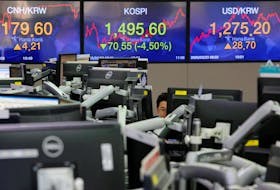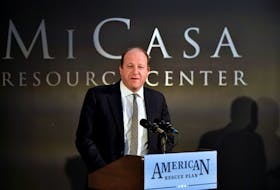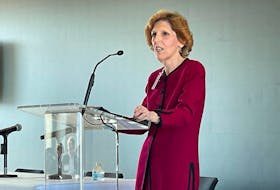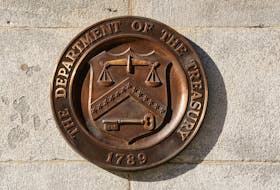By Imani Moise and Noor Zainab Hussain
(Reuters) - Wells Fargo & Co will launch a broad cost-cutting initiative this year, executives said on Tuesday, as the bank braces for massive loan losses caused by the coronavirus pandemic and continues to work through expensive regulatory and operational problems tied to a long-running sales scandal.
The news came as Wells Fargo posted its first quarterly loss since 2008 and slashed its dividend to preserve capital after performing poorly on the Federal Reserve's stress test. Rivals that reported results on Tuesday also posted big loan-loss reserves, but analysts said Wells Fargo's problems run deeper.
"We don't see anything positive from Wells Fargo to hang our hats on," David Hendler, a longtime bank analyst and founder of research firm Viola Risk Advisors, said in an interview. "The company has messed up for a generation."
Hendler pointed to what he described as problems with Wells Fargo's organizational structure and balance sheet exposures that cannot quickly be resolved.
Shares were down 4.8% at $24.19.
Wells Fargo was once seen as the crème de la crème of U.S. banks: it avoided the kind of problems that Wall Street rivals encountered during the 2007-2009 financial crisis and investors viewed its management team as a crew of wholesome, if profit-driven, traditional bankers.
But that perception has been upended since 2016, when the bank entered a settlement with regulators that detailed millions of phony accounts employees had created in customers' names without their permission to hit sales targets. Since then, there have been revelations about other customer abuses, and Wells Fargo has been unable to shake the damage caused by those sales practices.
Cost-cutting goals have been a hallmark of management's promises to improve profits for investors throughout the scandal, but it has so far been difficult for Wells Fargo to achieve them.
On Tuesday, Chief Executive Charlie Scharf, who took over in October, said he found $10 billion to slash from annual expenses. His predecessors had focused on costs relative to revenue.
"While our balance sheet is strong, our margins are too narrow," Scharf said on a call with analysts. "We need to begin to take action to improve our results."
Layoffs, branch closures and cuts to third-party spending are on the table, executives said.
The San Francisco-based bank also announced it would slash its dividend starting in the third quarter, to 10 cents per share from 51 cents.
Wells Fargo reported a net loss of $2.4 billion, or 66 cents per share, compared with a profit of $6.2 billion, or $1.30 per share, in the year-earlier period.
It underperformed expectations by a mile: analysts had expected a loss of 20 cents per share, according to Refinitiv data.
The main factors weighing on results were $9.5 billion loan-loss reserves and a $1.2 billion loss tied to the sales scandal. Total non-interest expenses jumped 8% to $14.6 billion.
Because Wells does not have a large capital markets business like JPMorgan Chase & Co or Bank of America Corp, its Main Street lending woes are even more painful.
It is also constrained by a growth restriction the Fed placed on its balance sheet as punishment for the sales abuses. Only when the management team can prove they have sufficiently improved risk management and controls will the regulator lift that penalty.
"This will be the toughest quarter for the banking industry since the financial crisis in 2008," said Edward Jones analyst Kyle Sanders. "Wells' results will be the worst of the bunch as the Fed's asset cap makes an already challenging environment even more difficult."
(Reporting by Noor Zainab Hussain in Bengaluru and Imani Moise in New York; additional reporting by Matt Scuffham in London; Writing by Lauren Tara LaCapra; Editing by Anil D'Silva and Nick Zieminski)









